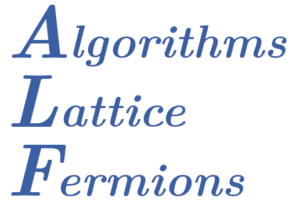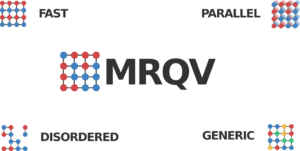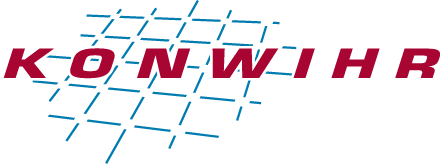The development of the following software was funded by KONWIHR:
ALF
The Algorithms for Lattice Fermions package provides a general code for the finite-temperature auxiliary-field quantum Monte Carlo models.
Open-Source: ✓ (GPLv3)
Developed by: ALF collaboration, University of Würzburg
Associated Projects: Monte Carlo simulations of topological quantum matter
ALPACA
Alpaca is an MPI-parallelized C++ code framework to simulate compressible multiphase flow physics. It allows for advanced high-resolution sharp-interface modeling empowered with efficient multiresolution compression. The modular code structure offers broad flexibility to select among many most-recent numerical methods covering WENO/T-ENO, Riemann solvers (complete/incomplete), strong-stability preserving Runge-Kutta time integration schemes, level set methods, and many more.
Open-Source: ✓
Developed by: Nanoshock group @ AER/TUM
Associated Projects: High-fidelity large-scale CFD simulations on SuperMUC-NG: Improving accuracy and reproducibility of high-resolution schemes
deal.II

deal.II is a C++ software library supporting the creation of finite element codes for a broad variety of PDEs, from laptops to supercomputers. With the support of KONWIHR, efficient matrix-free algorithms for high-order finite element and discontinuous Galerkin methods have been contributed to the library, and scalability on the supercomputer scale has been significantly improved.
Open-Source: ✓ (LGPL 2.1)
Developed by: worldwide team of developers; Dr. Martin Kronbichler (TUM) is one of the principal developers mostly involved in the HPC aspects of the library
Associated Projects: Performance tuning of high-order discontinuous Galerkin solvers for SuperMUC-NG
EMPIRE

EMPIRE is a semiempirical molecular-orbital package designed specifically for parallel execution. It uses Neglect of Differential Diatomic Overlap (NDDO) Hamiltonians to calculate ground and excited-state wavefunctions, optimize geometries, calculate normal vibrations within the harmonic approximation, and for direct Born-Oppenheimer molecular dynamics.
Open-Source: ✘ (but executable freely available for academic groups)
Developed by: Clark Group, CCC Erlangen
Associated Projects: EMPIRE – Ein Höchstleistungsprogramm für die semiempirische Molekülorbital-Theorie
HyTeG

HyTeG (Hybrid Tetrahedral Grids) is an open-source C++ framework for extreme-scale high-performance finite element simulations with a strong focus on matrix-free geometric multigrid solvers.
Open-Source: ✓ (GPLv3)
Developed by: Nils Kohl and Dominik Thönnes at the Chair for System Simulation (LSS) , FAU
Associated Projects: Coarse grid solver optimization for extreme-scale geometric multigrid methods on hierarchical hybrid grids
LIKWID tool suite

LIKWID is a node-level tool suite and library for performance-aware developers. It features a collection of useful command-line tools for topology exploration, affinity control, hardware performance monitoring, hardware configuration, and microbenchmarking.
Open-Source: ✓
Developed by: Erlangen National High Performance Computing Center (NHR@FAU), FAU Erlangen-Nürnberg
Associated Projects: OMI4papps – Optimization, Modeling and Implementation for highly parallel applications
MARQOV

MARQOV is a generic and highly scalable software workflow for numerical Monte Carlo simulations of classical equilibrium spin systems on general topologies, written in C++14 and Python 3. It provides efficient automatization in parallel environments and is therefore particularly suited for systems featuring quenched disordered geometries.
Open-Source: ✓
Developed by: Manuel Schrauth and Dr. Florian Goth, University of Würzburg
Associated Projects: Monte Carlo simulations of topological quantum matter
MGLET
MGLET (Multi Grid Large Eddy Turbulence) is a versatile and highly scalable incompressible Navier-Stokes solver that is based on finite-volume with a local grid-refinement capability. The CFD code is capable of fully-resolved turbulence simulations in moving arbitrary-shaped domains, which can be optionally combined with multiphase, scalar transport, and aeroacoustic solvers.
Open-Source: ✓ (Apache-2.0 License)
Developed by: Professorship of Hydromechanics, TU Munich; Kreuzinger + Manhart Turbulenz GmbH (commercial version)
Associated Projects: SIMD-optimisation of the CFD software package MGLET for SuperMUC-NG
preCICE

preCICE is an open-source coupling library for partitioned multi-physics simulations, including, but not restricted to fluid-structure interaction and conjugate heat transfer simulations.
Open-Source: ✓ (GPLv3)
Developed by: TUM SCCS, Univ. Stuttgart SGS, Univ. Stuttgart US3
Associated Projects: Optimization of Dynamic Mesh Handling in preCICE
PVSC-DTM
PVSC-DTM is a highly parallel stencil code generator that can produce efficient, MPI-parallel, and vectorized C code from a high-level description. It is optimized toward stencil structures that appear in the numerical simulation of Dirac and topological materials.
Open-Source: ✓ (Public domain)
Developed by: Andreas Pieper, Georg Hager (FAU)
Associated Projects: PVSC-TM
SCITE
SCITE is a software package to compute mutation histories of somatic cells. Given noisy mutation profiles of single cells, SCITE performs a stochastic search to find the Maximum Likelihood (ML) or Maximum aposteriori (MAP) tree and/or to sample from the posterior probability distribution.
Open-Source: ✓ (GPLv3)
Developed by: Katharina Jahn (main developer, ETH Zürich/Basel), KONWIHR contributions from Dominik Ernst (FAU), Peter Georg (University of Regensburg)
Associated Projects: Cancer Progression Models
SWEET
SWEET is a PDE solver environment with support for global spectral discretization methods in 1D, on the plane (2D), and the sphere shell (3D). SWEET serves as the basis for research on time integration methods and includes a variety of different time integrators (implicit, explicit, higher-order, semi-lagrangian, spectral deferred corrections, parallel-in-time, etc.).
Open-Source: ✓
Developed by: Martin Schreiber (main developer, TUM) and others
Associated Projects: Parallel in Time Integration with Rational Approximations targeting Weather and Climate Simulations
waLBerla

waLBerla (widely applicable Lattice Boltzmann from Erlangen) is a massively parallel framework for multi-physics applications. Besides its original objective, Lattice Boltzmann solvers for hydrodynamics, it now contains modules for other applications like Multigrid and rigid body dynamics as well. Great emphasis is placed on the interoperability between the modules, in particular, the fluid-particle coupling. It scales from laptops to current and future supercomputers while maintaining near-perfect efficiency.
Open-Source: ✓
Main developer: LSS @ FAU
Associated Projects:
- Integration of efficient compute kernels for phase field models into the waLBerla simulation framework using code generation and performance engineering techniques
- Scalable Data and Visualisation Output Strategies within the WaLBerla-framework
- waLBerla-MC: A Widely Applicable Lattice Boltzmann Solver for Many-Core Architectures

